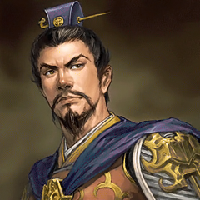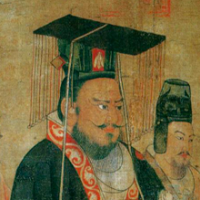Liu Bei(刘备) MBTI -Persönlichkeitstyp
Persönlichkeit
"Welcher Persönlichkeitstyp ist {profilename}? {profilename} ist ein {MBTI} -Persönlichkeitstyp in MBTI, {enneagram} - {iv} - {tritype} in EnneArgram, {big5} in Big 5, {socionics} in Socionics."
ENFJ is agreed upon so here's an argument for Big 5. This is for Historical Liu Bei. I will be sourcing most of these claims from records of Liu Bei's personal life Social > Reserved. Obvious social extrovert since young and loved to socialise with "heroes" and other fighters. Calm > Limbic. Liu Bei had many incidents of emotional outbursts and angry moments (ie. Kicking out Pang Tong from a party due to the latter giving conflicting opinions to him). But Liu Bei is usually recorded to have a calm demeanor. Young Liu Bei was known to "never manifest on his face much emotion". Imo this guy would score close to 50% on Neuroticism. Organised > Unstructured is not well founded, but based on his strategies, he usually plans ahead and proceeds to wait for the first opportunity to do what he wants. This is evident even in his early stages where he jumped ship constantly. Unlike Lu Bu whom was usually recklessly changing sides on moments notice, Liu Bei executed most of his earlier maneuvers with minimal setbacks. This would take some good maneuvering skill accredited to conscientiousness. Agreeable > Egocentric. Liu Bei is ultimately another selfish person and that could point to Egocentrism, but most of his life he actually did take on another party (Han Empire's) banner and constantly worked around his opponents and never broke that certain facade of gracefulness. A difference between him and Cao Cao (Egocentric) is whatever Cao did in the moment, he always oriented the direction of his external environment to his own agenda. Whereas Liu Bei played along with most people, even when he was at his peak. Non Inquisitive > Intellectual. Liu Bei is recorded to dislike reading, and there is no real evidence in his life that records him being inquisitive in any matters other than his own politics. He was much more of a fighter and political leader than someone who genuinely had a passion or curiosity for exploring ideas, unlike Cao Cao or Sun Quan. Argument for Moral Alignment: Liu Bei and Cao Cao have 2 major differences. 1. Liu Bei didn't commit any major atrocities throughout his career, unlike Cao Cao who committed genocide at certain points and Sun Quan who often used shady tactics against Shu Han and even his own officials. 2. His public persona Liu Bei was always known to be a loyal servant of Han and a benevolent lord. This adds on to point one and he never broke this facade. Three Kingdoms 2010 portrays him as secretly duplicitous, which is true to a degree. Liu Bei relies alot on backstabbing, but that's the ONLY way he could've gained power as soon as he did while playing the benevolent PR strategy. Given point #1 earlier, we cannot judge Liu Bei as inherently evil, and frankly what he does never really shows much malice besides a couple of betrayals. Provided, this guy ultimately continued the civil war against Cao Cao and Sun Quan and ruined more lives in action than he preserved. Not Evil, but probably not Good from the heart. Just a good doer. For a supposed Han Servant, this guy was also a massive rule breaker and never really tried to restore any of the former rules of the Han Dynasty. True Neutral. This guy and Cao Cao are basically both sides of the same coin, and both of them were fighting for the same ideals (restoration of order) from the very beginning. It's just ambition and survival that drove them apart. People who understand Cao Cao wasn't the bad guy can't claim Liu Bei is more evil, and vice versa people who think Liu Bei was the hero should remember that this man caused alot of damage himself and his actions ultimately stemmed from ambition. Sure, he wanted a unified china, but only he can be the hero of it.
Biografie
Liu Bei was a warlord in the late Eastern Han dynasty who founded the state of Shu Han in the Three Kingdoms period and became its first ruler. Despite early failings compared to his rivals and lacking both the material resources and social status they commanded, he gathered support among disheartened Han loyalists who opposed Cao Cao, the warlord who controlled the Han central government and the figurehead Emperor Xian, and led a popular movement to restore the Han dynasty through this support. Liu Bei overcame his many defeats to carve out his own realm, which at its peak spanned present-day Sichuan, Chongqing, Guizhou, Hunan, and parts of Hubei and Gansu.
Persönlichkeit correlate

Cao Cao

Zhuge Liang(诸葛亮)

Sima Yi(司马懿)

Cao Pi (Emperor Wen of Wei)

Cao Zhi

Elagabalus

Zhou Yu(周瑜)

Guan Yu(关羽)







